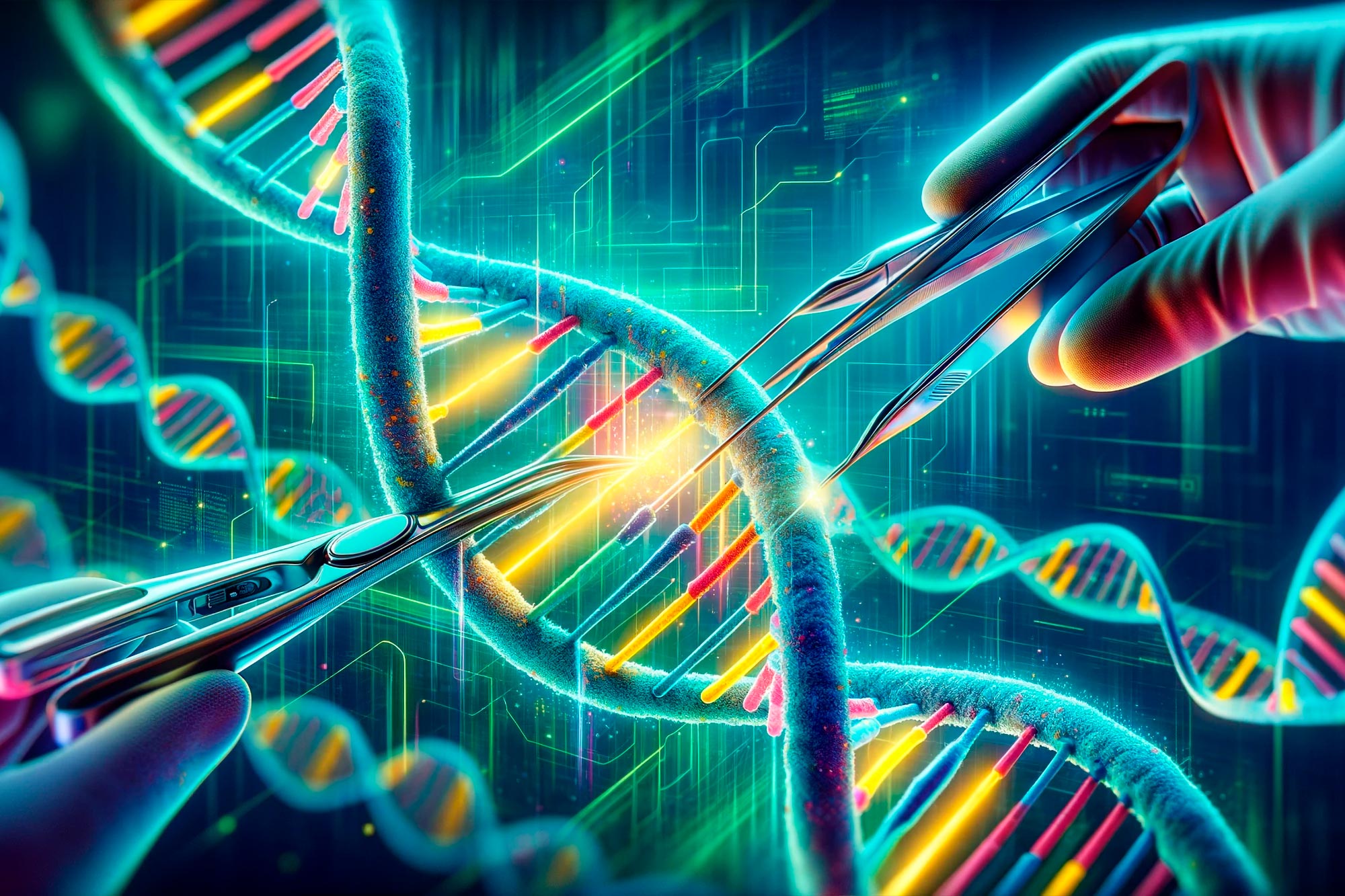Introduction to Gene Editing and CRISPR
Imagine a world where medicine is tailored just for you. A future where treatments are as unique as your DNA, and diseases can be tackled with precision like never before. This isn’t science fiction—it’s the fascinating realm of gene editing and CRISPR technology. These groundbreaking innovations are not only unlocking new doors in healthcare but also paving the way for personalized medicine that could change how we approach health.
Gene editing allows scientists to modify genes within organisms, opening up possibilities for prevention, treatment, and even potential cures for genetic disorders. And at the forefront of this revolution is CRISPR—a powerful tool that makes it easier than ever to edit DNA with stunning accuracy.
As we dive into this topic, you’ll discover what personalized medicine means for you and how these advancements might transform your health journey in ways you’ve never imagined. Let’s explore the incredible impact of gene editing on our lives today and what lies ahead on this exciting frontier!
The Potential of Personalized Medicine
Personalized medicine is transforming healthcare in remarkable ways. It tailors treatments based on an individual’s genetic makeup, lifestyle, and environment. This approach moves away from the one-size-fits-all model.
Imagine a world where your doctor knows precisely which medication will work best for you. That’s the promise of gene editing technologies like CRISPR. By understanding your unique DNA sequence, healthcare providers can design interventions that are more effective and have fewer side effects.
The potential extends beyond just medications. Personalized approaches can enhance physical therapy as well. Therapists could customize exercises to better suit your genetic predispositions or recovery patterns.
As we delve deeper into genomics, opportunities for breakthroughs continue to grow. The excitement around personalized medicine lies in its ability to tackle diseases at their source rather than merely alleviating symptoms.
The Ethical Concerns Surrounding Gene Editing
Gene editing raises complex ethical questions that society must confront. The power to alter genes can lead to significant breakthroughs, yet it also opens doors to potential misuse.
One major concern revolves around designer babies. Parents might choose traits for their children, creating societal pressures and inequalities based on genetic selection. This could deepen existing divides in access to health and opportunities.
Another area of debate is the unknown long-term effects of gene editing. While CRISPR technology has shown promise, scientists still lack comprehensive data on its implications over generations.
Additionally, there is a risk of playing God—altering life forms at fundamental levels sparks strong emotional responses among various groups.
As we navigate these uncharted waters, the importance of public dialogue becomes paramount. Engaging diverse perspectives ensures that scientific advancements benefit everyone equitably without compromising ethical standards.
Real-life examples of successful gene editing and personalized medicine
One striking example of successful gene editing is the case of a young girl known as Hayley. She was born with severe combined immunodeficiency (SCID), a condition often referred to as “bubble boy disease.” Using CRISPR technology, scientists were able to alter her DNA, allowing her immune system to function properly.
Another remarkable instance occurred with patients suffering from sickle cell disease. Researchers employed gene editing techniques to modify stem cells and successfully produced healthy red blood cells in these individuals. Many now lead normal lives without the debilitating pain associated with their previous conditions.
In cancer treatment, personalized medicine has made leaps forward through targeted therapies. By analyzing an individual’s genetic makeup, doctors can tailor treatments that specifically attack cancerous cells while sparing healthy ones.
These stories illustrate how gene editing and personalized medicine are not just concepts but transformative realities in modern healthcare.
The Role of Genetic Counseling in Personalized Medicine
Genetic counseling plays a crucial role in the realm of personalized medicine. It serves as a bridge between complex genetic information and individuals seeking to understand their health better.
Counselors provide insights into genetic testing options, helping patients make informed decisions. This process can reveal predispositions to diseases or conditions, enabling proactive healthcare measures.
Moreover, counselors offer emotional support during this journey. The stress of potential diagnoses can be overwhelming. Having an expert guide can ease anxiety and clarify uncertainties.
Personalized medicine isn’t just about treatment; it’s about empowerment through knowledge. Genetic counselors help patients grasp the significance of their unique genetic makeup. They facilitate discussions on lifestyle changes, preventive strategies, and tailored treatments that align with individual needs.
As advancements continue in gene editing technologies like CRISPR, the value of these professionals will only grow more prominent in ensuring ethical practices and patient understanding within personalized healthcare solutions.
The Future of Gene Editing and Its Impact on Healthcare
The future of gene editing holds extraordinary promise for healthcare. As technology advances, we can anticipate more precise and efficient treatments tailored to individual genetic profiles.
Imagine therapies that not only target diseases at their roots but also prevent them from manifesting in the first place. This proactive approach could revolutionize how we view health management.
Moreover, CRISPR’s potential expands beyond curing genetic disorders. It opens doors to personalized treatments for conditions like cancer and autoimmune diseases by fine-tuning immune responses.
Collaboration among research institutions, biotech companies, and regulatory bodies will play a crucial role in shaping this landscape. The challenge lies in ensuring accessibility so these groundbreaking innovations benefit everyone—not just a select few.
As gene editing matures, its integration into mainstream medicine promises a shift toward holistic care focused on prevention, enhancing our quality of life while redefining traditional treatment paradigms.
Embracing the Possibilities of Personalized Medicine
The advancements in gene editing and CRISPR technology are opening doors to a new era of personalized medicine. This innovative approach tailors treatments to individual genetic makeups, making healthcare more effective and targeted.
Imagine a world where diseases can be prevented before they even manifest or where therapies are customized to fit your unique biological profile. The potential for improved patient outcomes is immense.
As we embrace these possibilities, it’s crucial to remain informed about the ethical implications and challenges that come with such powerful technologies. Genetic counseling plays a significant role in guiding individuals through this evolving landscape, ensuring informed choices that align with personal values.
The future holds great promise as we continue to explore the intersection of health, gene editing, and personalized medicine. As we navigate this journey together—patients, clinicians, and researchers—we have the opportunity to shape a healthier tomorrow for all.




